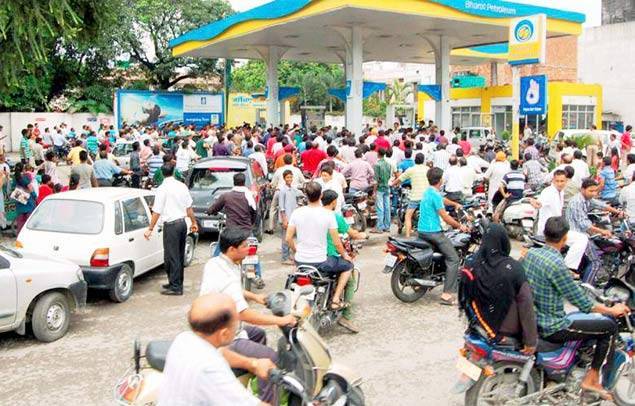We need petrol. We need electricity. And we need natural gas. Need is a delicate word, an expression often associated with the commodities and facilities which are prerequisite of our very existence. The researchers have segregated different things we use in daily life into three different groups: needs, wants and wishes.
There are things essential for our life, our very existence. We cannot survive without these on the surface of the earth. Air, gravity, food, water, clothes, shelter; these are our basic needs. Everything else either falls in the category of wants or wishes.
Let’s go back a 100 years. The year is 1914. Most of us are not yet born. Majority of our ancestors are living in villages. What do they do? How do they survive? In general, they are farmers or doing businesses closely associated with agriculture. They are living in traditional havelis and houses. They don’t have electricity, natural gas, water supply, sanitation facilities, washrooms, easy excess to hospitals or even schools. However, what they did have was the will and resolve to survive in the best possible way in those testing times.
Now gaze around; we are in 2014. It’s true that the world has progressed materially by manifolds during the past hundred years. However, we are languishing behind in that respect from the rest of the world.
It’s also a fact that our successive governments have been inept and corrupt. They didn’t plan anything. They didn’t see the price future generations will pay for the folly they call Indus River Treaty. They didn’t budge even when the country was at the brink of collapse to set political differences aside, to save it.
They never planned how the nationalization of industry will affect the country. They never forecasted what’ll be the repercussions of the constitutional amendments at the behest of the tunnel-vision clergy. They never estimated the cost this country would pay for mindlessly mixing religion in governance. They failed to see the fallout of arming illiterate youth.
They didn’t have any projection of the consequences their petty politics can have on institutions and their viability. They never envisioned how to meet the demands of electricity and natural gas of the growing population. They never predicted how bank financing of electronic items and vehicles will hurt our future import bills and jeopardize our fiscal operations. These are but few examples of the “good governance” of our successful governments.
However, lambasting governments alone will be unfair. After all, these governments, civilian at least, have been voted and supported by the masses. Therefore, we cannot put all the blame on them. The politicians are not from Mars. They are ultimately one of us. They always return to their constituents for reelection. So if they don't perform, why does the constituency send them again and again for representation?
If the masses believed in false promises made during the election rallies by the incumbents setup and voted for them, then why blame the government now? Wasn't it our responsibility and in our own interest to not repeat our mistakes?
And does our responsibility end with casting a vote? As citizens of this country, this country expects from us lot more than mere participation in electoral process.
Pakistan has been passing through testing times. We have lost more than sixty thousand fellow brothers and sisters in the war on terror. This ordeal has hampered not only the wheel of economy but has also made foreign investors wary of investment. When people take to the streets, isn't it appropriate for us to ask whether we are using our resources with austerity or not? Or is it the government's responsibility once again to always pamper the masses no matter what price the country has to pay in the end?
Our live styles have changed considerably from those of our ancestors. And now we, as a nation, are not willing to sacrifice just because our country is unable to support our wants and demands.
Just take the example of electricity shortages; we all know that there is not enough electricity in the national grid to meet our demand. But has this led us to consume electricity wisely? Unfortunately, this short supply has not affected our way of consumption. Further, have we done anything to increase supply on our own? The world is switching to alternative energy resources. Solar panels are the answer to our electricity woes. How many of the Pakistanis, who can afford solar systems, have installed such systems on their roof tops. The figures are not available but they will surely disappoint us all. And despite the subsidy on import of solar panels, we still prefer to burn tyres on roads.
We had started this discussion by recalling the will and resolve to survive in testing times. We sell shoddy nationalism and boast about an imaginary past. If any one of the myths of our brilliant past is true, it must be visible in our character and conscience. Add to that the changing geopolitical alignments in our neighborhoods and this responsibility multiplies.
It’s high time each one of us to played our part in the rebuilding process and proved that we indeed are a nation. Chastising governments all the time has never solved any of our issues. And it never will.






